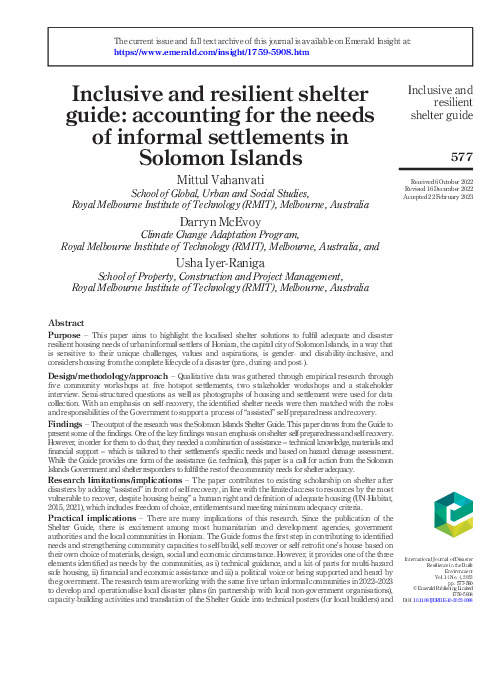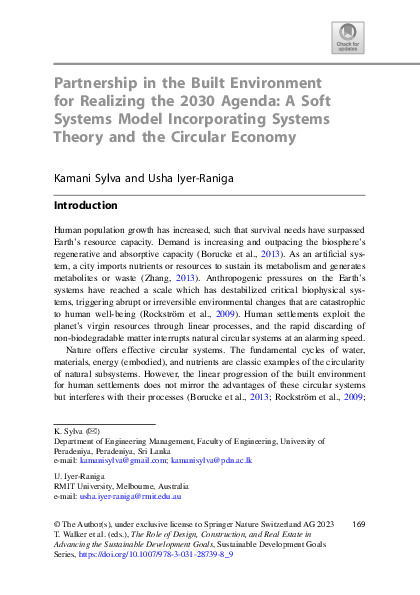Student Perceptions of Environmental Education in India
Effective implementation of environmental education (EE) is to produce students who have experienced an attitudinal change so that they can evaluate and show their concern for sustainable development (SD). Environmental education (EE) was introduced as a compulsory subject for schoolchildren in 2003. In the present study, we conducted an offline survey on senior primary, middle, and high school students in one school in the north Indian city of Kanpur. The responses received for the offline questionnaire survey QS (including open-ended and closed-ended questions) from ~800 students reveal that schoolchildren have heard of climate change (CC) and perceive it as a significant threat. Most of them feel that temperature rise is the most notable consequence of CC and show great willingness for knowledge enhancement and action. However, there is a lack of understanding of the difference between EE and CCE (climate change education) in the Indian context. The results also indicate critical gaps related to the environmental dimension of education, and students overwhelmingly want increased school activities that will enhance awareness and build capacity. The need to integrate EE and CCE and spread information on the ESD (Education for Sustainable Development) initiative of UNESCO in urban India is urgent. Social media emerges as a significant player in awareness generation. Its use can help reach out to a broader audience. Students’ proactive engagement in awareness campaigns and energetic participation, already reported by several studies to have a positive impact, is essential for promoting climate action and sustainability. It sheds light on the status of the effectiveness of EE in the school curriculum of India with the aim of promoting environmental literacy. The recent G-20 Summit held in New Delhi, India, recognized the increased vulnerability of low-income countries to climate change and re-iterated its commitment to delivering quality education to all and following a green development path and highlighted the “green development path for a sustainable future” The paper outlines suggestions for educational interventions to enhance students’ comprehension of global critical environmental challenges and promote mitigation strategies.
Professor Usha Iyer-Raniga is at the School of Property and Construction Management at RMIT University. Usha is co-leading the One Planet Network’s Sustainable Buildings and Construction Programme (SBC), United Nations 10 Year Framework of Programmes on Sustainable Consumption and Production (UN 10FYP SCP) aligned with Sustainable Development Goal 12, as well as the newly formed Integrated Platform for Circular Economy, Climate Resilience, and Energy. This is research is directly related to the work of the UN OPN SBC programme.


